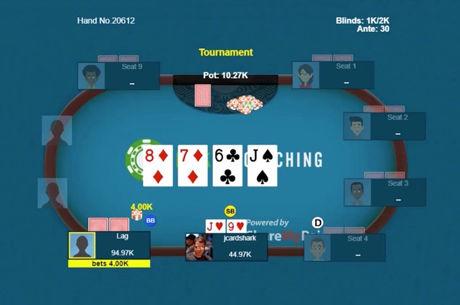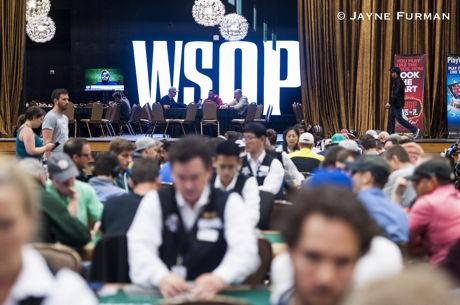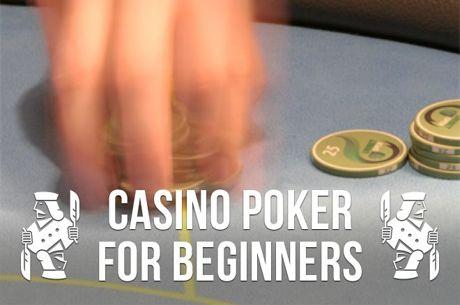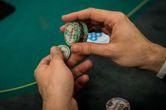Postflop Strategy: Playing from Out of Position With Top Pair
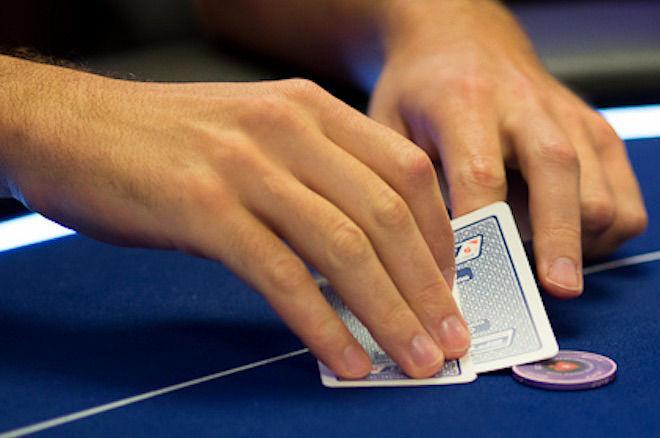
This week's hand comes from early in a tournament and finds me trying to negotiate a multi-way situation after flopping top pair with a weak kicker. I titled the video "Jonathan Little Plays Top Pair in a Weird Manner." See for yourself if you agree.
With the blinds 25/50 and everyone sitting with stacks of about 15,000, a player limped from under the gun and it folded around to me in the small blind with K?6?. I called, the big blind checked, and the flop came K?9?7?.
I had a marginal made hand with which it makes sense to be cautious, and I did just that by checking. The big blind also checked, then the UTG player bet 100. I called and the big blind called, too, making the pot 450.
The turn was the 4?, pretty much a blank. Here I decided my opponents had a lot of draws and decided to lead with a bet of 400. Typically I'd just check in this scenario, though as I say in the video below I might have been working on turn leads on this day and so chose to bet. I don't mind the bet as it protects my equity, but generally speaking I'd prefer continuing just to remain cautious and check-call in this situation.
The big blind called my bet and the UTG player folded, bringing the pot to 1,250. The river then brought the J?. Should I check or bet here? See what I decided to do and how things turned out, and listen to my analysis throughout the hand:
Whereas in retrospect I would've preferred checking the turn, looking back I actually think I should have bet the river given all the busted draws and the likelihood my opponent would have a lesser hand with which he'd call. After checking I was prepared to call most bets, but he checked, too, and my king proved best.
This hand definitely shows how playing from out of position with top pair and no kicker is not as easy as it may seem. That strange turn lead also shows how it is important when reviewing hands to keep an eye out for hands in which you've taken an unusual or out-of-character line. Make sure you're always focusing and paying attention at the table so mistakes don't creep into your default game.
Jonathan Little is a professional poker player and author with over $6,700,000 in live tournament earnings. He writes a weekly educational blog and hosts a podcast at JonathanLittlePoker.com. You can follow him on Twitter @JonathanLittle.

